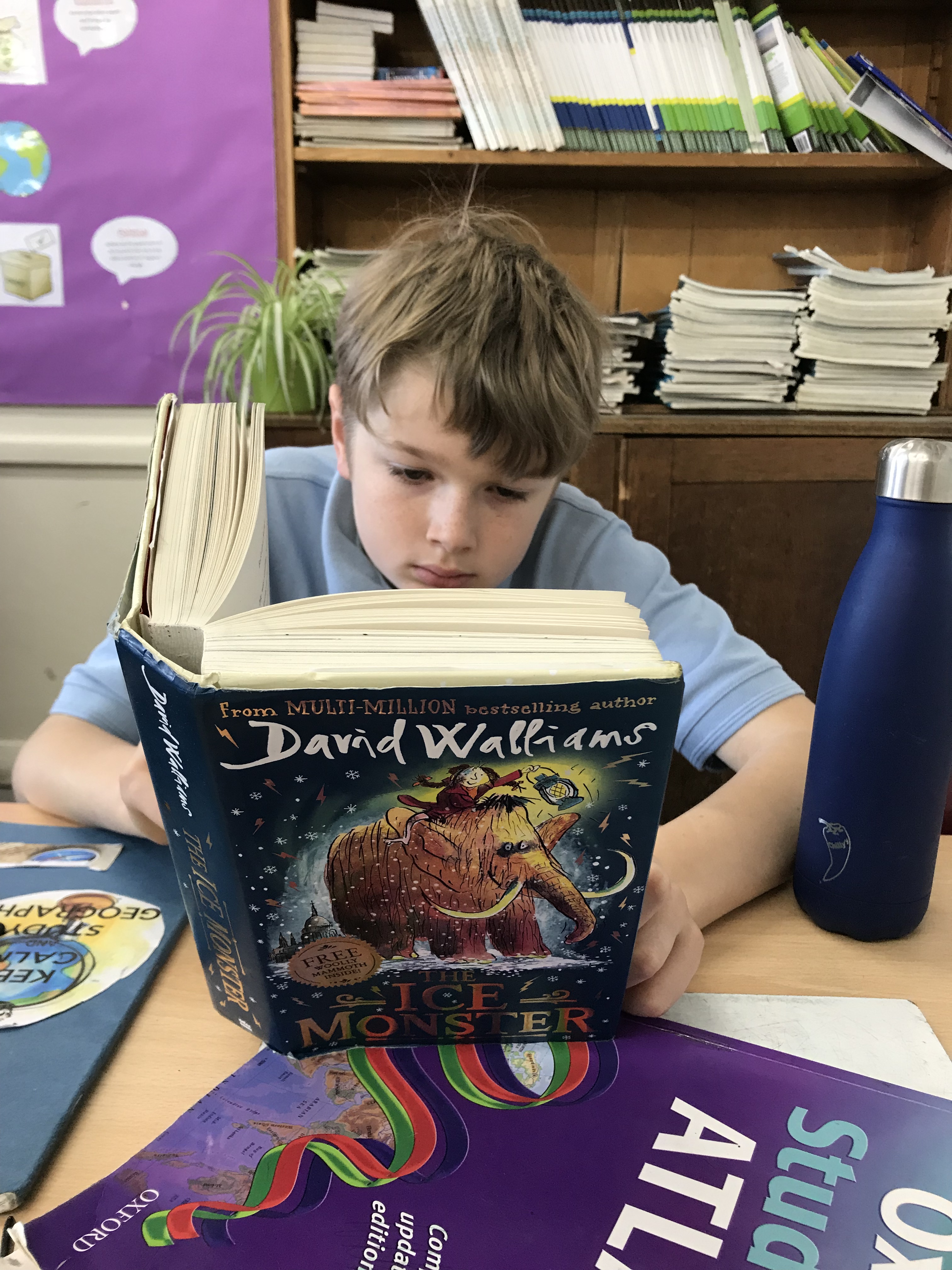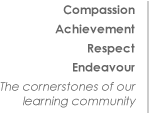
English at KS3
At Key Stage 3, students are encouraged to engage with a wide and diverse variety of texts including Shakespeare, Dickens, Mildred D. Taylor and Adeline Yen Mah . Each unit is designed to encourage students to make comparisons and links between different types of text on a common theme, enabling students to enjoy different types of literature; in turn, this should prepare students for the challenges at Key Stage 4. Throughout the Key Stage, students will read a broad range of poetry, drama and prose texts, as well as a variety of non-fiction texts that are both print-based and on the screen.
Writing for a range of purposes and audiences will be explored, including speech and letter writing, blogs and stories. In each case, students will need to tailor their writing to suit the genre, audience and purpose, whilst maintaining sound spelling, punctuation and grammar. Where students need to develop aspects of their writing, students receive verbal or written feedback in class time. There are websites that students may wish to access if they need to practise elements of SPaG at home, such as BBC Bitesize or Englicious.
Students are assessed three times a term in English. This will consist of a selection of class work being marked in their books for reading and writing, and also one timed assessment where they will write an essay or creative piece under exam conditions. All students will be provided with detailed comments from their teacher identifying their main strengths and weaknesses, and individualised targets outlining their next steps toward meeting their flightpath. In addition to this, they will be assessed on their speaking and listening skills each term using a similar system to the GCSE exam where a separate grade will be given by their teacher. This doesn’t affect their overall flightpath target. Our assessment policy has been designed carefully to both support and encourage students in their learning, and also to build the exam skills required for GCSE.
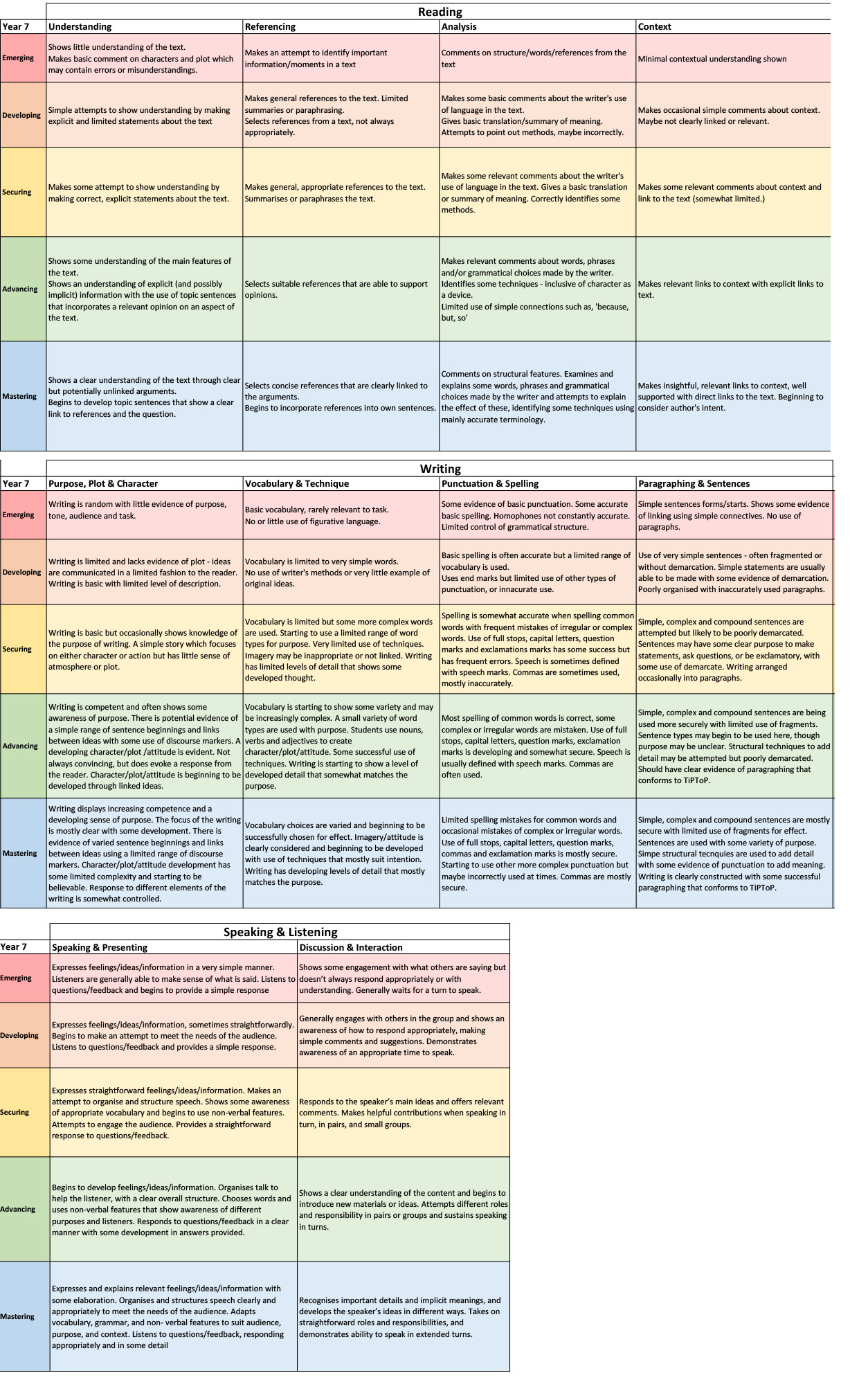
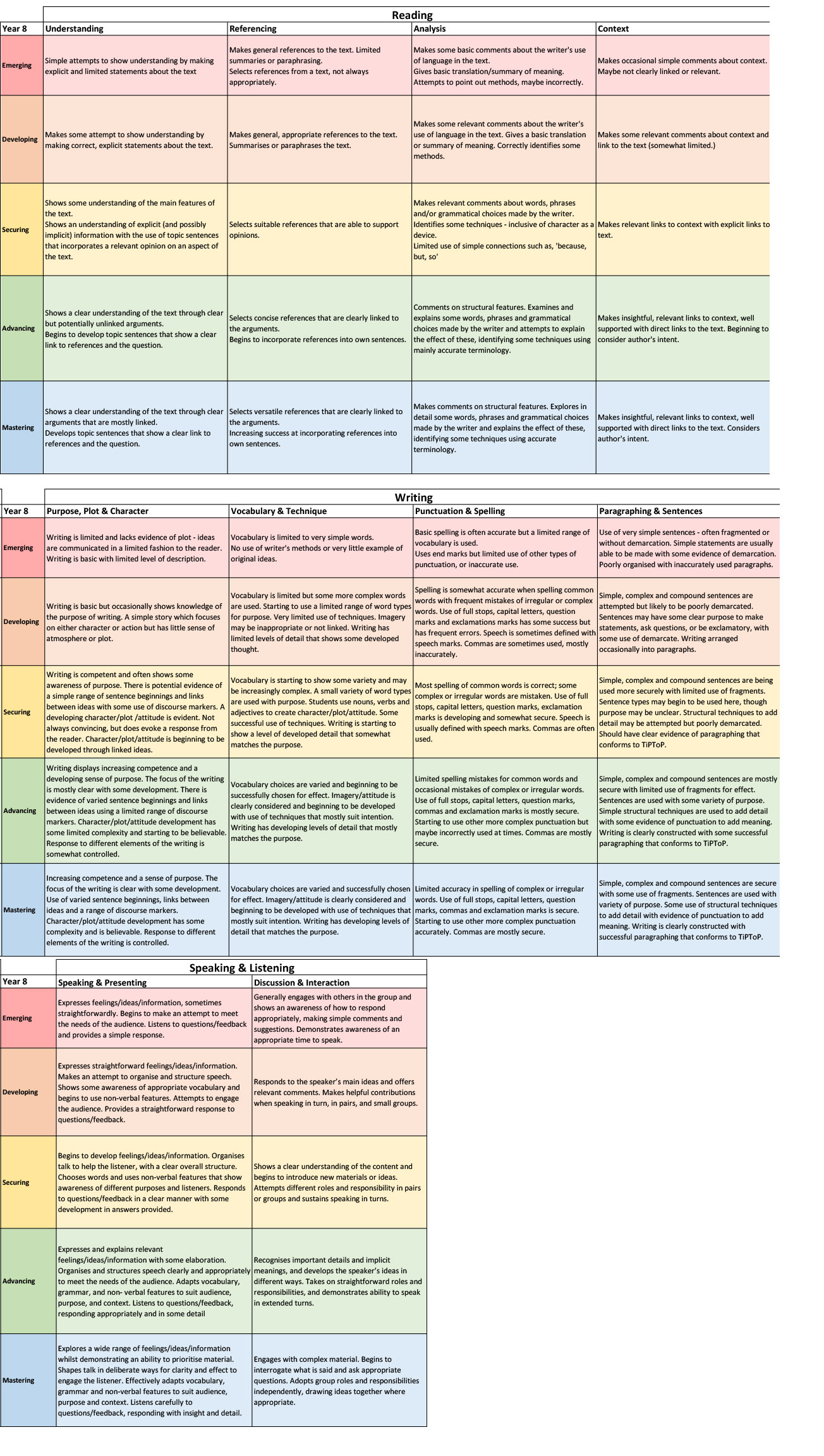
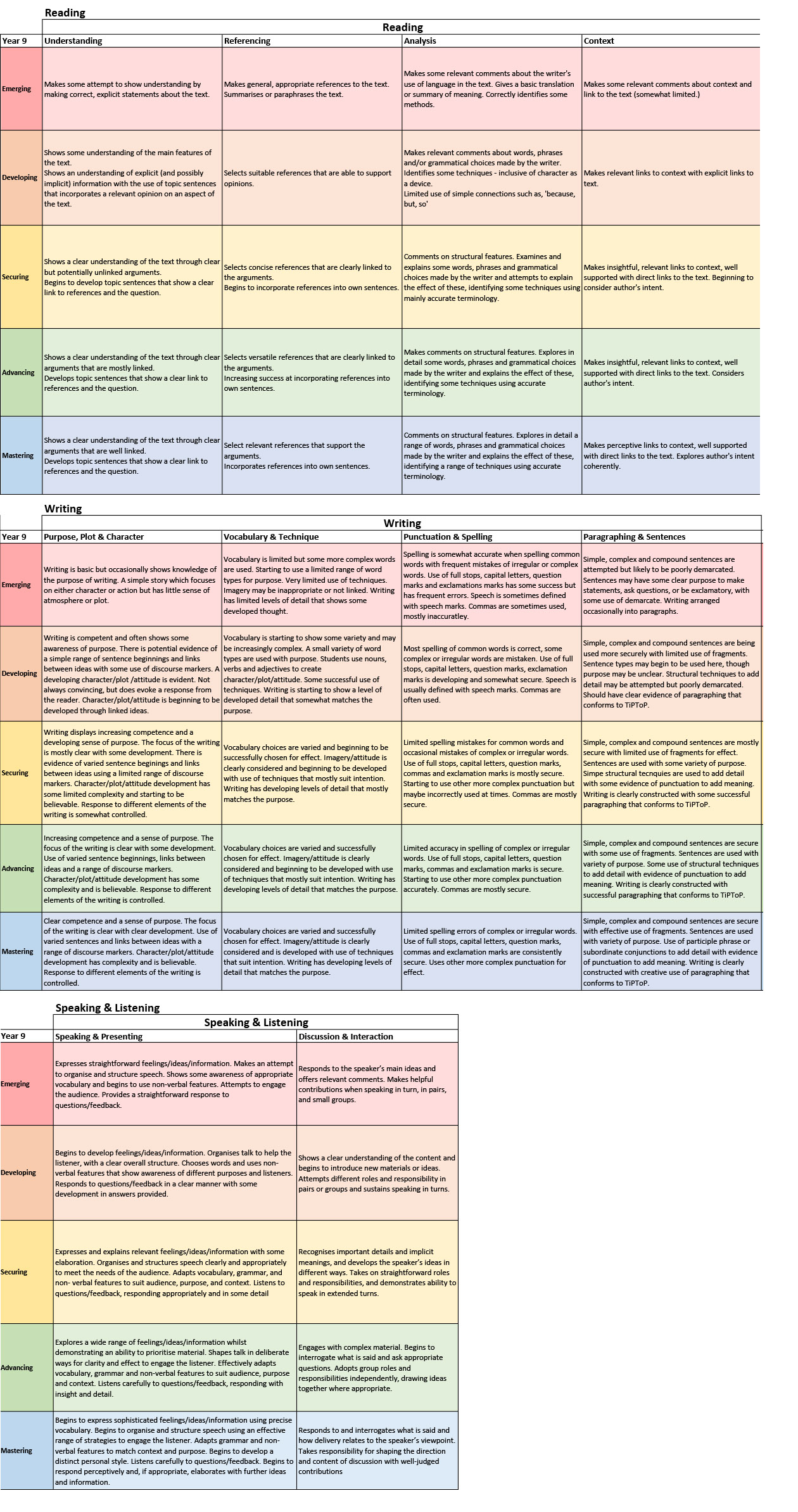
DEAR - Drop Everything and Read
The importance of wider-reading cannot be overlooked in English. Studies attest that reading enables students to perform better in school, and will encourage better writing as well. At Windmill Lane, all students participate in ‘Drop Everything And Read’ (DEAR) every day. Students accumulate sixty-six hours of reading each academic year in support of their academic development and the enjoyment of reading. To further support our students’ reading, and encourage them to stretch their reading capabilities, we have allocated one full lesson per fortnight to reading and visiting the Library, where a librarian can introduce new texts and teachers can listen to students read 1:1. In addition, it is highly encouraged that students read at home; there are reading lists for each year group and topic for this purpose.
